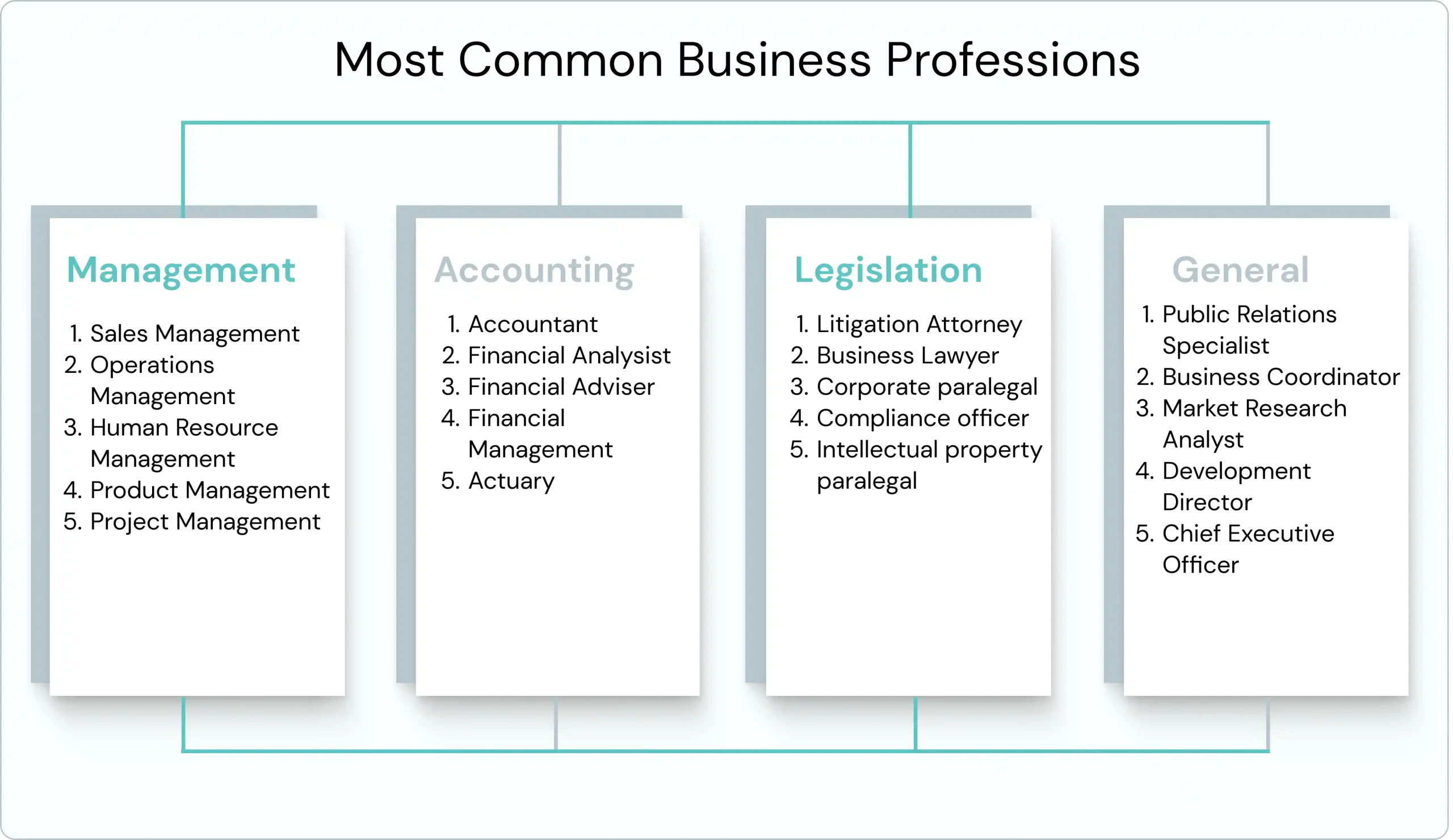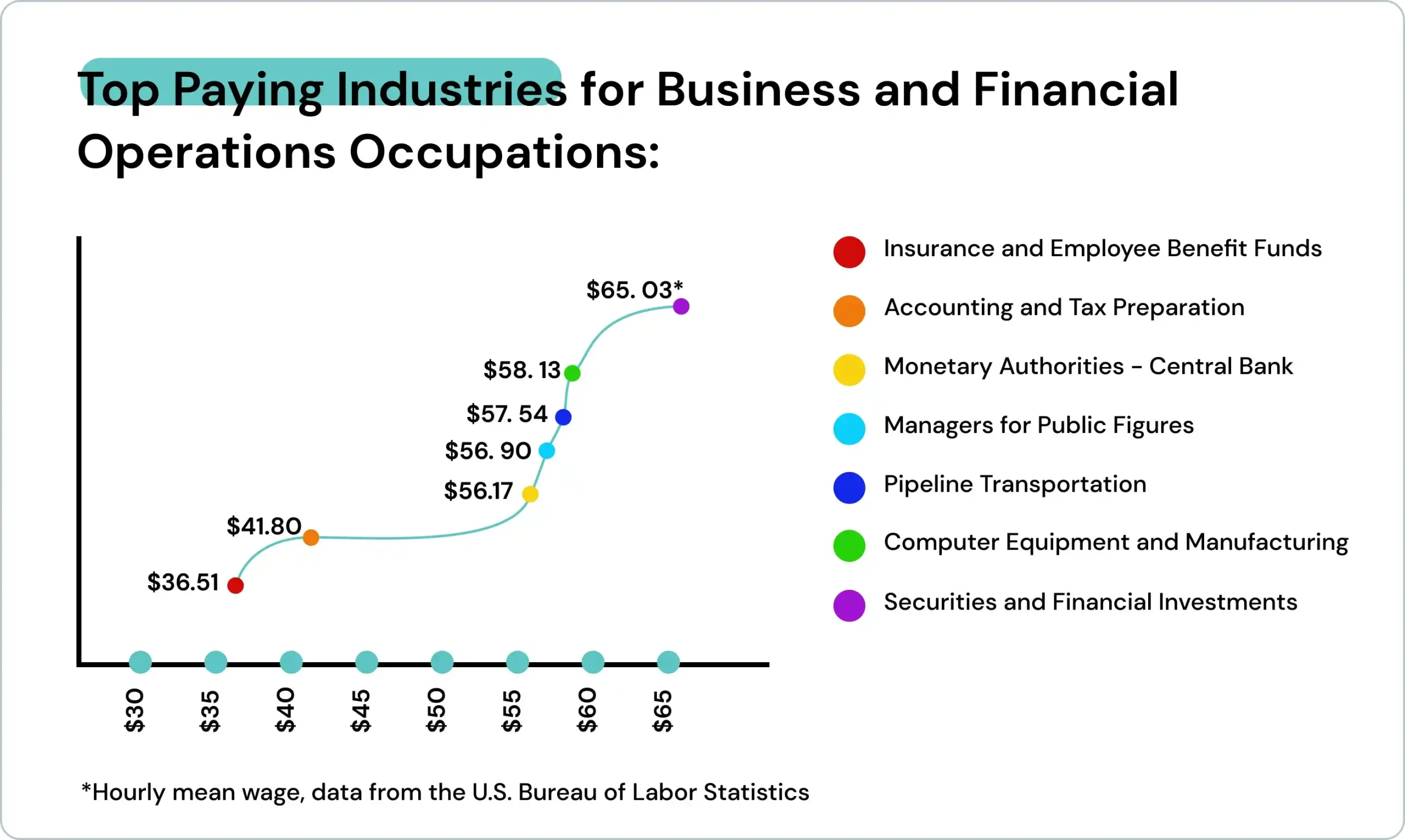In my business school, we learned about NPV, the college degree impact, and Net Present Value. It shows how the investment returns over time. You should do similar calculations for your bachelor’s or master’s degree. Getting a degree for me is not just your careless good years. It is an investment in myself that should pay off soon—and it’s also important to keep in mind the national investment in higher education, since overall funding levels indirectly influence tuition rates and financial aid availability. As I pass the internship at one of the companies of the Big Four and prepare for a Master’s degree, I can say that education is important and appreciate the value of business class I took.
What Is a Business Degree?
Business studies is a bunch of different areas collected for business accountment. It includes marketing, finances, administration, management, and entrepreneurship. That means that if you get a bachelor’s or master’s degree, you can start internships, look through employment resources for students or work in different positions:
- Accountant
- Business Project Manager
- Finance Adviser (Fundraiser)
- Sales Manager
- Entrepreneur
- Human Resource Specialist
For example, here are some specialties that I and my friends and collegues deal with every other day:

When thinking about the value of a business degree you need to think about how it aligns with your career goals and the level of expertise you want to achieve. If you want to get into niche areas or do in-depth research then a dissertation is required. A business degree gives you the foundation to navigate complex processes but higher education allows you to explore niche topics and bring new ideas to your industry. If you’re on that path, looking where you can buy dissertation can be a great way to get expert guidance and save time for practical applications.
Investing in higher education like completing a dissertation not only adds to your credentials but also gives you deeper understanding of niche areas like business analytics or global economics. This will boost your employability and open up higher paying roles. Combining theory with practical applications means you’ll be ready for leadership roles or entrepreneurial ventures, every step of your educational journey counts.
My Story
Growing up in Abu-Dhabi, I was always curious about international business. As the Capital of the United Arab Emirates, Abu-Dhabi grows really fast. Rich, beautiful buildings and markets surrounded me, and I learned fast that all is possible. So, as soon as I graduated from school, I decided that it will be possible for me to go to America and study there.
My dream came true, and I first graduated with a bachelor’s degree in States and now applied for admission to Rotary Peace Scholarship. I learned that education is crucial to becoming a part of American society and that one should choose wisely, especially when considering the broader question of whether a bachelor’s degree is worth it. Below I shared my experience and researched the current prospects for business students.
What Are the Factors to Consider?
When I thought of the area for my education, I was slightly afraid. I clearly wanted to work in a business field but did not know whether to get a business degree or something like accounting or management. So, I composed a list of factors and thought a lot about them. These are the cost of tuition, living expenses, additional materials, the promised salary, and the study program. And beyond these, students must also consider considering the national student debt figures, which reflect the average debt burden carried by graduates across the U.S. education system.
How Much Does a Bachelor’s Degree Cost on Average in the US?
I started doing this research for my own purposes a long time ago. The information that I found back then is no longer relevant. So, I did a new small research recently. All the information below is what I personally see now on the market.
The data from the American National Center for Education Statistics says that in 2020-2021 4‑year institution cost was $14,700 at public institutions. Education in private non‑profit and for‑profit institutions costs closer to $30,000 – 50,000—so weighing the cost of a Bachelor’s degree is essential when assessing if the outcomes justify the investment. Sometimes, the numbers may be multiplied in two, depending on the location. I can’t say the exact numbers, but in Georgetown University McDonough School of Business, the tuition costed a little bit more than 45,000 USD.
Getting a degree is an investment in yourself that should pay off soon.
What Salary Can You Get with a Degree in Business?
The salary will also highly depend on the type of career, location, the scale of the company, and the entry-level job. However, according to the U.S. Bureau of Labor Statistics data, the annual mean wage varies from $ 85 000 to $ 130 000. Of course, we should take into account that this is the average salary, and the entry-level payment will be much more modest—and it’s useful to compare this with the average salary for college graduates to frame business income within broader earning trends.
But even if divided into two, the annual wages will cover the tuition cost in a few years. Mine is not fully covered yet, but I am actively working on it now. Therefore, based on the financial questions, getting a business degree is very profitable. It is necessary if you want a good-paying profession but do not want to enter nursing or a specific economic field.

When studying business it’s important to remember it’s a mix of theory and practical application. Coursework helps bridge that gap, where students can apply real life scenarios, case studies and develop critical thinking. For students who struggle to balance academic load or need extra support, coursework help is a lifesaver. It keeps students on track while maintaining the quality and depth of learning.
Doing coursework well not only helps you understand key business concepts but prepares you for the corporate world. Whether it’s a case study on market trends or a report on financial management, mastering coursework gives you the skills to succeed in your career. With the right support, whether professional guidance or tailored help, you can get the most out of your business education and apply your knowledge in internships and future roles.
What Is Wrong with Business Education?
I searched the information here on Quora for one of my projects and accidentally found a lot of posts about the business degree. The authors said that the material is generic and useless or that a business major with a bachelor’s degree is useless because you still need a Master of Business Administration degree. Some will tell you that such courses teach only basic elementary knowledge, while others insist that education is helpful.
That is how I thought about writing this article and explaining my perspective. I will explain why both parties are correct and wrong at the same time.
The educational curriculum
The problem with why some students say business courses are useless is that some of the curriculums concentrate only on the theoretical part. Moreover, some only propose management knowledge or generic statements and classifications on business, leadership studies, and the importance of human resource management. For instance, the whole course may be based only on strategic thinking and making correct decisions for the business.
Pro Tip: If you want a high-quality education, ask the university or the graduated students for the expanded curriculum. You should know what you are getting into.
The problem is that strategic sessions take about two to three days in real business management. The rest of the processes need more accounting, legal, and marketing knowledge. Learning how to take notes in lectures effectively can help capture these practical aspects better. For instance, my education covered the following parts of the business basics:
- The basics of accounting, finance management, and fundraising
- Business Analytics and Technologies
- Daily business operations
- Entrepreneurship and Leadership
- Global Economics and Business
- Marketing Management, sales psychology, sales strategies
- Strategic Management
What I did to avoid getting useless education
Before starting my education, I searched for the alumni community from the university of my choice. I contacted them and asked what topics they covered and how applicable the information was. I also asked them how complicated it was to find a job after graduation. In their and mine experience, finding a job and internships after graduation was not hard. The community and people connections really help to choose good options.
Pros and cons of a degree in business
In general, no matter what degree it is, my personal opinion is that having a degree is better than not having one. Especially it concerns immigrants, people who see their life in the States, and minority groups. America is a country of possibilities. However, one should have as many advantages as possible to benefit from these possibilities, such as exploring available scholarships for low income students. The pros and cons of a degree in business are better to see in comparison.
The pros of the business degree:
- Valuable connections. One goes for a business degree, wanting to run a startup or join a big company. Business schools and courses are the best places to find people with the same goal. Some will become SEO in large corporations, giving you more information about the good and bad points of working there.
- Universality. The business degree covers many topics and fields. If you want to go for a business but do not know what exact type, a degree shows you different options.
- The way of thinking. Regardless of your study material, a business major teaches you to think about making everything work. Some newcomers in business stop after the first mistakes and troubles. Bachelor’s degree in business prepares you not to be afraid of failures and try again and again.
The cons of the business degree:
- Universality. Yet, it was in the pros, but it is also a disadvantage of that degree. If you go for a finance and accounting degree, you can still enter the business sphere. Yet, you will have more profound accounting knowledge and be more demanded in the market.
- The need to continue education. This point comes from the previous one. You can get a job offer after a bachelor’s or master’s degree in business. However, you will still need to learn a lot in your job. This includes studying from your colleagues and passing specified major business-level courses—especially if you’re interested in some of the highest paying engineering jobs or tech-adjacent roles.
- The danger of getting into poor-quality courses. I explained earlier that some people say business courses are bad because of the low informativeness. If you are not careful enough, you can waste much time and effort on such education and not get the expected results.
Is it Possible to Enter the Profession Without a Degree?
My personal recommendation is to search the requirements for work on professional websites. Type your specific profession in the search line and see whether the company requires education for the entry level. For instance, below are my findings and insights on the topic.
I am currently working in a big Tech company, and knowing business processes helped me pass the interview and helps in daily operations now. Writing a classification essay in business studies was especially useful in organizing and understanding these processes clearly.
Here are two results of my search for business professions on LinkedIn. The first is a Business Analyst – Technical Writer, and the second is Face to Face Fundraiser. For the role of Business Analyst, the company requires Bachelor’s degree with coursework in technology. Also, the company will prefer the applicant with a Master’s Degree in Information Systems or equivalent. On the contrary, the other company proposes paid training, ongoing coaching, and in-field support. Depending on the position, understanding business structures’ legal implications can also be crucial—especially for roles involving compliance, reporting, or strategic planning.

The conclusion is that finding a job without a degree is real. However, that option can be in another state, and you may not like the labor conditions there. Meanwhile, if you’re struggling with productivity, there are simple strategies to overcome laziness in school. In my personal experience, having a business degree significantly helped me in my work. I am currently working in a big Tech company, and knowing business processes helped me pass the interview and helps in daily operations now.
Recommended reads
Choosing to study business means you’ll likely face the challenge of writing MBA papers and managing other business assignments. Developing strong writing skills and grasping key business ideas are crucial for success. Remember, our blog is here to support you with practical advice, sample papers, and useful resources whenever you need help.





